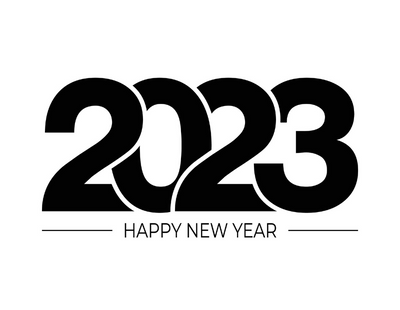The last thing you want as we rake through the dying embers of 2023 is a journalist’s prediction of what’s going to happen next year.
There are some obvious things of course - a General Election, the passing of the Renters Reform Bill into law and slowly reducing inflation and interest rates. But what I’m not going to do is give any specific prediction on how rents or prices will change.
Why? Well firstly many more expert figures are doing the same and, secondly, I feel anyone who tries now to say what will happen to prices by next December (down to one or even two decimal places in some cases) is basically making things up.
Who, a year ago, would have predicted our current war in the Middle East? Or that the then-popular Rishi Sunak would be trailing so badly in every poll? And that the rental market would have seen yet another hard-core year of demand ahead of supply while sales transactions dropped by around 20 per cent?
Rental growth
So while I am more than happy to collate the predictions of others, my own view is that we ought to look at the direction of travel of most analysts rather than the exact prediction of any one.
And, for once, there is a good deal of agreement on that direction of travel.
In the rental market, the only way is up.
Zoopla predicts that annual rental growth will slow, but still be 5.0 per cent by the end of next year. The same figure is predicted by property consultancy JLL and high-end agency Knight Frank, with the latter predicting a slightly larger 5.5 per cent rise for Greater London. Hamptons anticipates a 4.0 per cent rent hike on average next year.
On the sales side everyone - well, almost everyone - is anticipating price falls, although generally low and possibly reduced further if the wider economy picks up.
Easily the most pessimistic forecast comes from comparison website Confused, which lived down to its name by suggesting average prices could fall next year by £50,000. This has been rubbished by the agency industry and, perhaps more importantly, no other forecast comes remotely close to such a claim.
The panel of experts assembled by personal finance service Finder are also pessimistic, but less starkly so: 73 per cent of the experts believe prices will fall between 5.0 and 10.0 per cent, with more than half expecting prices to fall between 5.0 and 7.5 per cent.
Of the major lenders, the Halifax is predicting that house prices will fall between 2.0 and 4.0 in 2024, while Nationwide says there will either be a small dip or values will be flat - it is not saying a figure.
Rightmove has previously forecast a further 1.0 per cent drop in asking prices next year while Zoopla anticipates a 2.0 per cent drop - and warns that even if interest rates fall significantly in 2024, their impact will be on rising transaction volumes rather than prices.
The Office for Budget Responsibility forecast at the Autumn Statement last month that prices would fall by 4.7 per cent in 2024.
Positive territory
Savills - at one time the most respected forecaster of them all and still highly regarded - says prices will fall 3.0 per cent in 2024, with some less debt-dependent prime regional markets dropping a more modest 1.5 per cent. Knight Frank anticipates a 4.0 per cent average drop in mainstream housing next year, with some prime markets actually entering positive territory. Property consultancy JLL is less specific but says next year’s price falls will be in low single figures.
Sentiment is important when it comes to prices and, as perhaps the one bit of good news, the Building Societies Association’s Property Tracker report says only 24 per cent of people expect an average house price fall in 2024 - as recently as September the figure was 39 per cent.
So there we have it - a slew of predictions for price falls … except for one. I said ‘almost everyone’ predicted a fall, but once again it’s a price comparison service that bucks the trend.
GoCompare suggests that instead of dipping in 2024, prices are set to rise as interest rates begin to drop back. It says prices should rise by an average 5.92 per cent by September. Comparison websites, it seems, like going out on a limb - or is that the only way they can get any publicity?
Happy New Year!













.png)


.png)



Join the conversation
Jump to latest comment and add your reply
If inflation is 20% over two years and prices fall by another 10% you have property at 72% of its previous real value, a significant fall by any standard
Worse than that Simon, property prices increased 18% to 23% in two years, then decreased by 11% last year (the 10% increase which did not happen plus the 1% loss) then you factor in inflation at 10% for most of 2023, but it swerved inflating property prices (so hyper-inflation of goods and services with realestate moving in the other direction). 21% less completions in 2023 is the real kicker. Can residential agency survive interest rates moving form 0.1% BoE in Dec 2021 to a 5.25% hike last Autumn, that's a 525 times multiplier ... no wonder FTB's are rare. Which given they used to be 42% of the market, could be the real tradegy of 2024.
Please login to comment